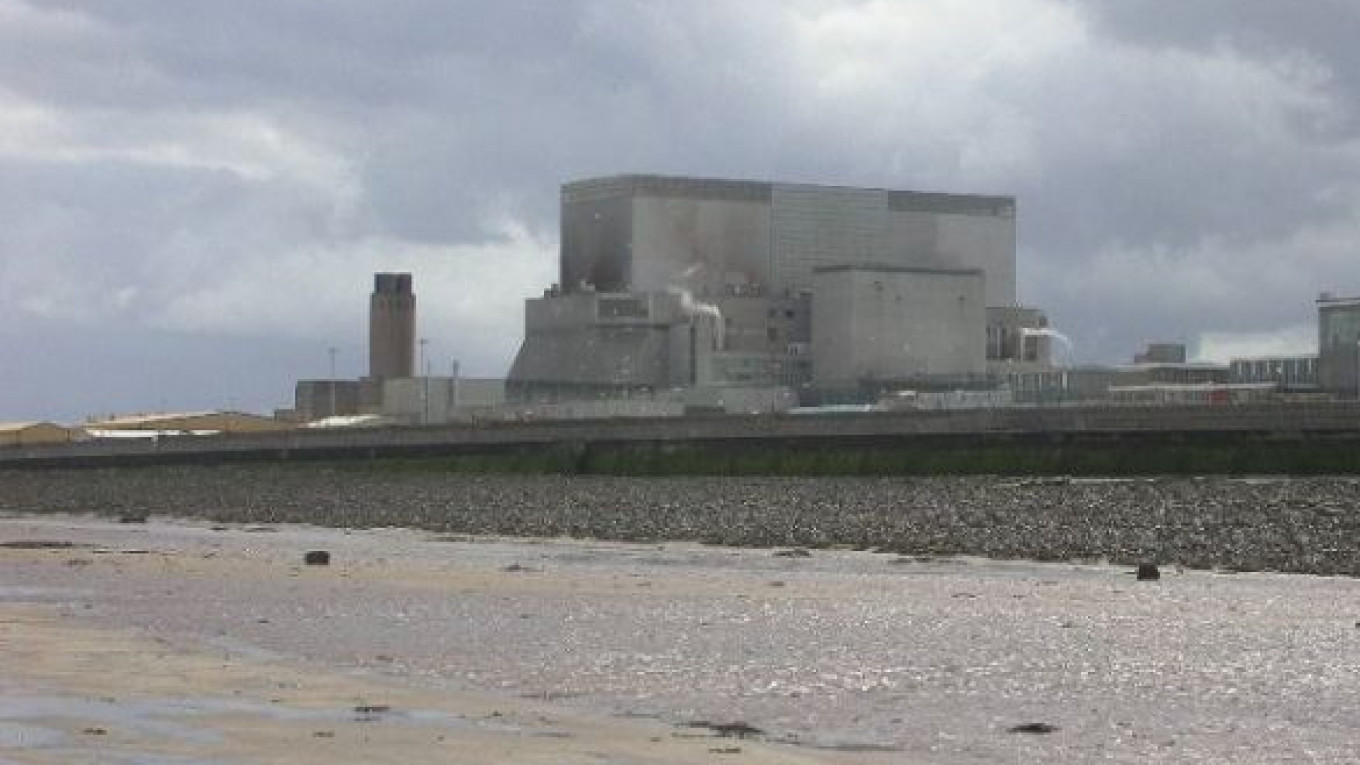State nuclear company Rosatom is considering selling reactors in Britain and will soon decide whether to apply for a British reactor license, a senior company executive said.
Rosatom is now building more atomic power plants than any other vendor and has been marketing the legacy of the former Soviet Union's own nuclear disaster, at Chernobyl in 1986, as a lesson learned in nuclear safety.
A major player in developing markets such as China, Vietnam and India, Rosatom has long been interested in building reactors in the European Union, where it is already a supplier of nuclear fuel.
While Germany and some other countries have turned away from nuclear energy in the wake of Japan's Fukushima disaster in 2011, Britain remains determined to build atomic capacity, which now provides about 20 percent of its electricity at nine plants.
"Britain's nuclear program is interesting for the entire world because it is a highly developed European country with quite high electricity prices that currently doesn't have its own [nuclear] technologies," said Rosatom deputy chief executive Kirill Komarov, who is in charge of international business development.
Russian nuclear technology has been unpopular in Western Europe since the Chernobyl disaster, but Britain is in dire need of investors willing to replace its aging nuclear fleet after a series of utility companies, including Germany's RWE and E.ON and Britain's Centrica, have dropped out.
The government has earmarked at least eight new sites, and developers such as France's EDF, Japan's Hitachi and a joint venture of Spain's Iberdrola and France's GDF Suez have proposed plans to build up to 16 gigawatts of new nuclear power capacity by 2025.
Before entering the British market, Komarov said, Rosatom would wait to see whether EDF reaches a deal with the British government on a guaranteed minimum power price for its proposed Hinkley Point project, Britain's first new nuclear plant in almost 20 years.
The guaranteed price, also known as a contract-for-difference, or CfD, is part of a major electricity market reform, currently being assessed by Parliament, to encourage types of energy that emit little or no carbon.
Through the CfDs, the government guarantees to top up prices to reach an agreed "strike price" for power generated by the nuclear plants, should market prices fall after they are commissioned.
"This is a very comfortable scheme that guarantees return on investments," Komarov said.
EDF expects to announce by the end of the year whether it has reached a deal with the British government and plans to hold talks on partnering with a Chinese state-run firm.
"We are waiting to see what agreements EDF reaches," Komarov said. "If we see that we can get a return on our investments, we will enter the project with great desire. I think today we have reasons to be optimistic that this might happen."
He did not say which type of reactor Rosatom hoped to license and sell in Britain.
Jukka Laaksonen, a former Finnish regulator and now a vice president in Rosatom's export branch, said in June that the Russian firm would offer a new design to the British market.
He said Rosatom was unlikely to apply before 2015 for a license from British regulators, an expensive process that takes about four years to complete.
Market analysts have also suggested that Rosatom could offer its most popular reactor mode: a 1,200 megawatt pressurized water reactor, also known as the VVER 1,200. It is building four such reactors for the Turkish Akkuyu nuclear plant for an estimated total of $20 billion.
Elsewhere in the European Union, Rosatom is in talks with Finnish nuclear consortium Fennovoima to build a 1,600 megawatt reactor in northern Finland and may also take a stake in the consortium.
It is also hoping to compete with Toshiba's U.S. unit Westinghouse for a contract to extend Czech utility CEZ's Temelin nuclear power plant.
A Message from The Moscow Times:
Dear readers,
We are facing unprecedented challenges. Russia's Prosecutor General's Office has designated The Moscow Times as an "undesirable" organization, criminalizing our work and putting our staff at risk of prosecution. This follows our earlier unjust labeling as a "foreign agent."
These actions are direct attempts to silence independent journalism in Russia. The authorities claim our work "discredits the decisions of the Russian leadership." We see things differently: we strive to provide accurate, unbiased reporting on Russia.
We, the journalists of The Moscow Times, refuse to be silenced. But to continue our work, we need your help.
Your support, no matter how small, makes a world of difference. If you can, please support us monthly starting from just $2. It's quick to set up, and every contribution makes a significant impact.
By supporting The Moscow Times, you're defending open, independent journalism in the face of repression. Thank you for standing with us.
Remind me later.






